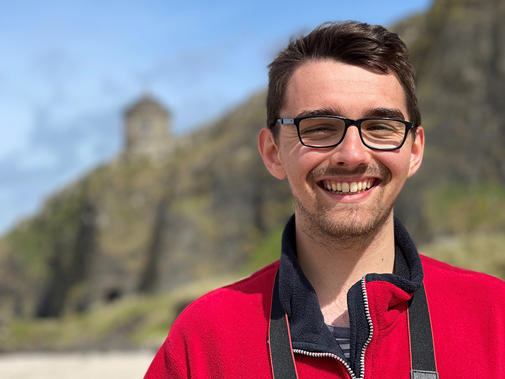Clinical placements are one of the most exciting and daunting parts of being a medical student. It gives us our first taste of practising medicine in a real clinical environment.
But when we should be looking forward to this key part of our medical school curriculum, most of us are having to worry about the financial cost and logistics of actually getting to the placements.
Travel
As a fourth year medical student I have nearly completed two years of various clinical placements and each one has been a varied and valuable experience. But the one constant is difficulty in getting to them.
Placements for third, fourth and fifth year at Queen’s University Belfast can be in any of the regional hospitals across Northern Ireland. While Northern Ireland is not a large geographical area, compared with some of the other placement regions in England or Scotland, the lack of good public transport links makes many of these journeys to placements impossible or extremely lengthy and if you have access to your own mode of transport it is still very costly.
Even placements in hospitals or with GPs in Belfast, where there are better transport options, can be hard to reach for early starts or night shifts owing to a lack of transport options at these times (something that affects other healthcare workers too).
I have been able to save up over the years to afford my own car which makes getting to placement so much easier. A 30-minute drive from my home rather than the 1hr 30 minute journey on public transport to most of my placements in Antrim hospital is a no brainer! However, with the recent petrol increase even these simple journeys have become a difficult budgeting task. I travel around 160 miles per week to placements, which is around £25 worth of fuel, not to mention the other costs associated with keeping a car on the road.
Accommodation
Traditionally, the health trusts have provided free accommodation at placement hospitals for medical students. However, the number of spaces have not kept up with the increase in student numbers over the past few years. In addition, students still have the costs and logistics of getting to the accommodation which can be located some distance from the placement hospital or GP practice.
For students unable to access trust accommodation, or who are on GP placements away from home like I am, we can apply for an accommodation subsidy of £33.75 per night from the university that’s funded by the Department of Health.
As grateful as we are for this subsidy, the system to access it is slow, bureaucratic and lacks flexibility. It is limited to accommodation on a ‘bed and breakfast’ basis, which is hard to come by at £33.75 per night and not enough to cover the additional costs of food and drink many students have owing to the lack of self-catering facilities in B&Bs.
If we are unable to secure accommodation at the set subsidy, then we must present evidence to support this before any extra costs incurred are rebated. It also does not cover Airbnb’s, ruling out large amounts of self-catering options which would help reduce food costs.
Another major issue with the subsidy is that it does not cover students who stay with family and friends, essentially forcing students to choose between staying with people they know at a reduced cost or staying alone in private accommodation with limited or no self-catering facilities.
I benefited massively by staying with distant cousins for my GP placement rather than being alone in tiny B&B room. Having other people to chat to plays a massive role in maintaining positive mental health when in new or difficult placement situations. I happily paid them for my stay, but it was without the help of the subsidy.
What needs to change
For years the NIMSC Northern Ireland medical students committee has been campaigning for a travel allowance to give students the financial support and flexibility to travel to placements from their home or term-time accommodation. That finally became a reality this academic year with the new £5 per-day flat rate for medical student travel expenses. While this amount is greatly appreciated it barely covers the transport costs of even those who live within a very close proximity to their placement.
Financial support for medical students on placements is not in line with the rising cost of living. This puts an unnecessary burden on medical students at a key time in their studies. The issue is so wide-spread across the UK that it’s one of the key motions in the upcoming BMA medical students conference.
Good doctors are forged during their medical placements. Give us more adequate and flexible financial support during this crucial medical school experience so we can use them to their greatest potential.
David Griffith is a fourth year medical student at Queen’s University Belfast and a member of NIMSC

